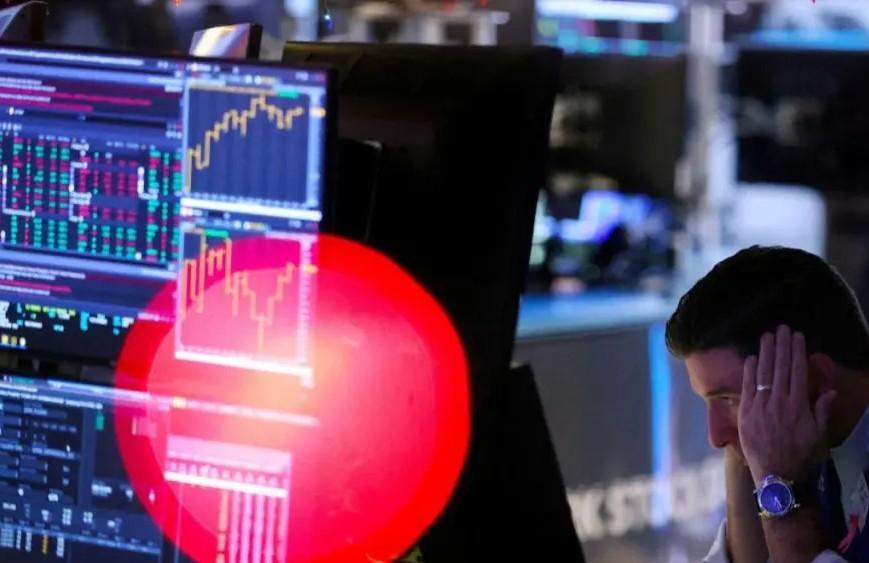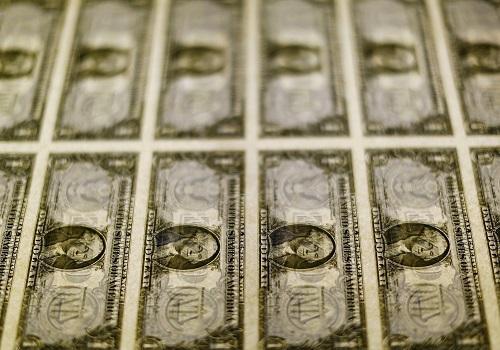
US Stock Market Suffers Biggest One-Day Losses since 2020 after Trump’s Tariffs
The US stock market experienced its worst one-day drop since 2020 on Wednesday, as investors reacted to the announcement of reciprocal tariffs by US President Donald Trump. The S&P 500 index fell 4.84%, while the Dow Jones and Nasdaq composite slid over 1,600 and 1,000 points, respectively.
The sharp sell-off on Wall Street was fueled by fears of a trade war between the US and other countries, including India. The tariffs, which were announced on Tuesday, are part of the Trump administration’s efforts to address what it sees as unfair trade practices by other nations.
The Dow Jones Industrial Average closed 1,063.99 points, or 4.42%, lower at 23,957.13, while the S&P 500 index fell 139.24 points, or 4.84%, to 2,632.56. The Nasdaq composite lost 345.67 points, or 4.96%, to 7,347.63.
The losses were widespread across the market, with nearly all sectors and industries declining. The technology sector, which has been a bright spot in recent months, was hit particularly hard, with Facebook, Amazon, and Google all falling more than 5%.
Nike, the sportswear giant, was one of the biggest losers on the day, with its shares crashing 14%. Apple, another tech giant, saw its shares fall nearly 10%.
The sell-off was fueled by fears that the tariffs will lead to a trade war with other countries, which could have a negative impact on the global economy. The tariffs are also likely to increase costs for American companies, which could lead to higher prices for consumers.
“This is a big deal,” said Peter Boockvar, chief investment strategist at Bleakley Advisory Group. “The tariffs are going to be a huge headwind for the economy. It’s going to be a big problem for companies that rely on imports.”
The tariffs are also likely to have a negative impact on the US dollar, which could lead to higher prices for imported goods and services.
The news of the tariffs sent shockwaves through the global markets, with stock markets in Europe and Asia also falling sharply. The British pound fell 0.5% against the dollar, while the Japanese yen rose 0.3%.
The tariffs are part of the Trump administration’s efforts to address what it sees as unfair trade practices by other nations. The administration has been pushing for changes to the global trade system, including the elimination of tariffs and other trade barriers.
The tariffs are also likely to have a negative impact on the US economy, which has been growing at a pace of around 2% in recent months. The tariffs could lead to higher prices for consumers, which could reduce their purchasing power and lead to slower economic growth.
The news of the tariffs sent shockwaves through the global markets, with stock markets in Europe and Asia also falling sharply. The British pound fell 0.5% against the dollar, while the Japanese yen rose 0.3%.
The tariffs are part of the Trump administration’s efforts to address what it sees as unfair trade practices by other nations. The administration has been pushing for changes to the global trade system, including the elimination of tariffs and other trade barriers.
The tariffs are also likely to have a negative impact on the US economy, which has been growing at a pace of around 2% in recent months. The tariffs could lead to higher prices for consumers, which could reduce their purchasing power and lead to slower economic growth.
In conclusion, the US stock market suffered its biggest one-day losses since 2020 after Trump’s tariffs announcement. The tariffs have sparked fears of a trade war and have led to a sharp sell-off on Wall Street. The impact of the tariffs on the global economy and the US dollar remains to be seen, but it is clear that the news has sent shockwaves through the markets.
Source:






